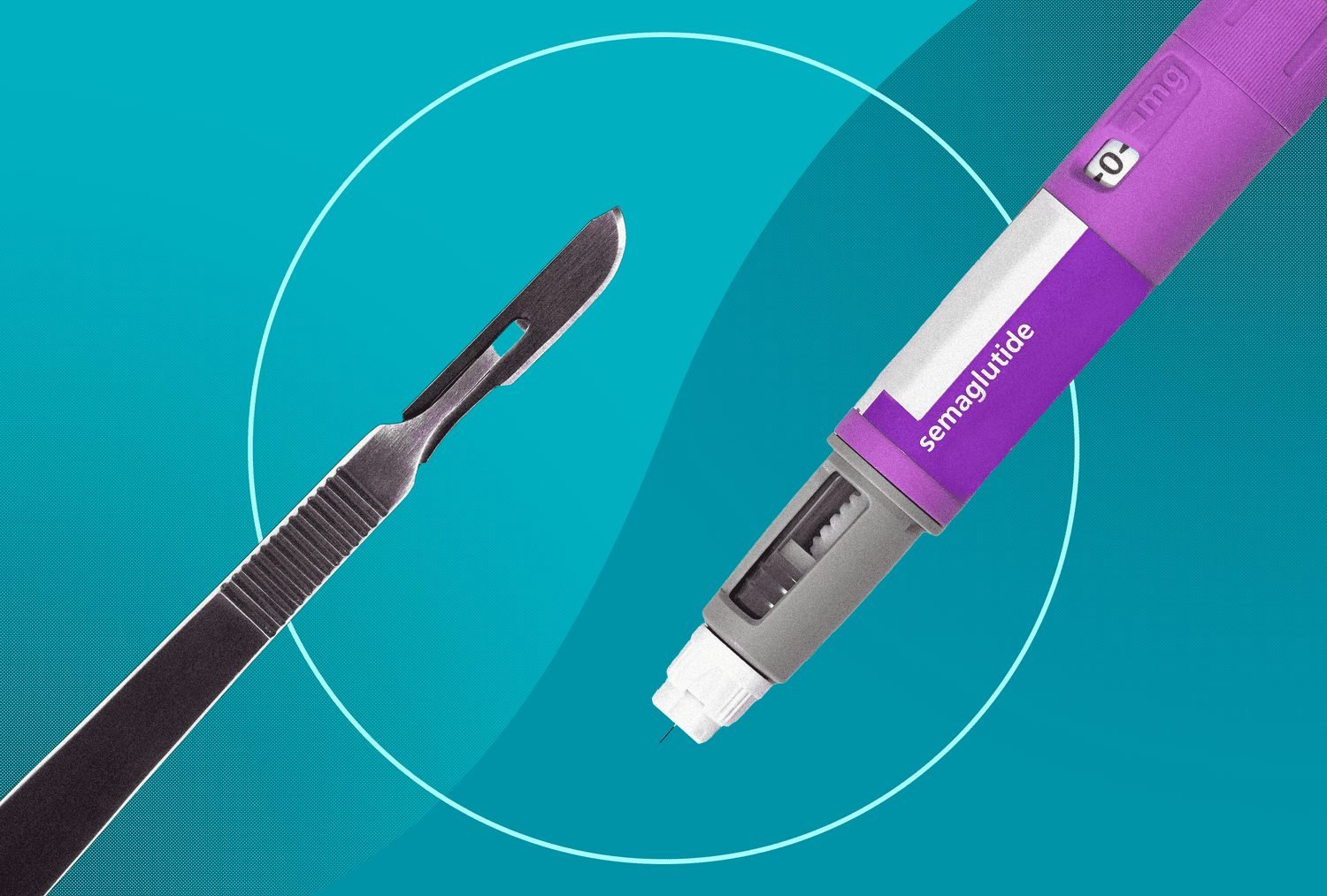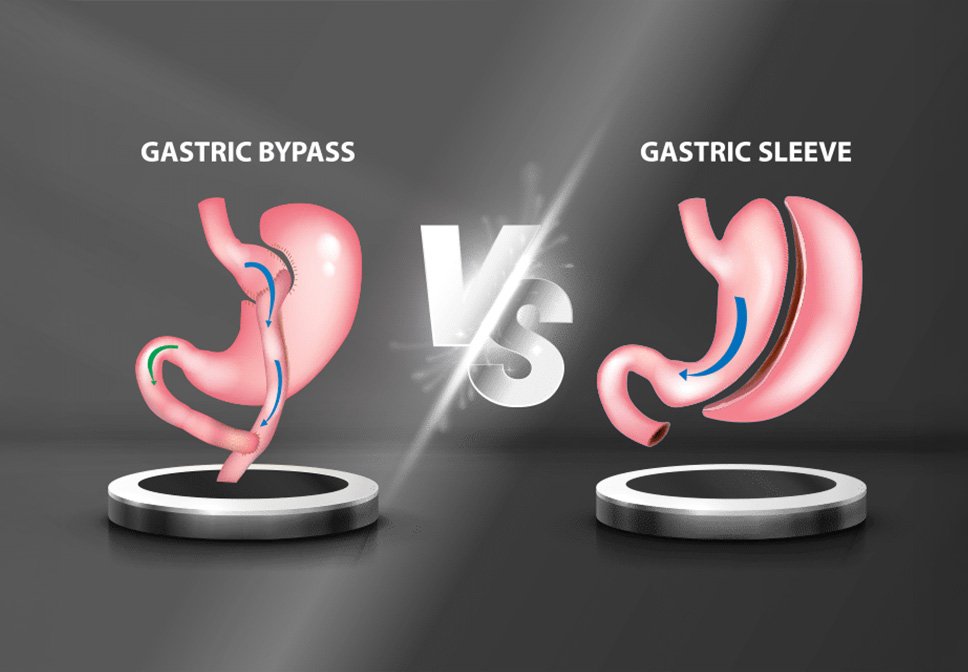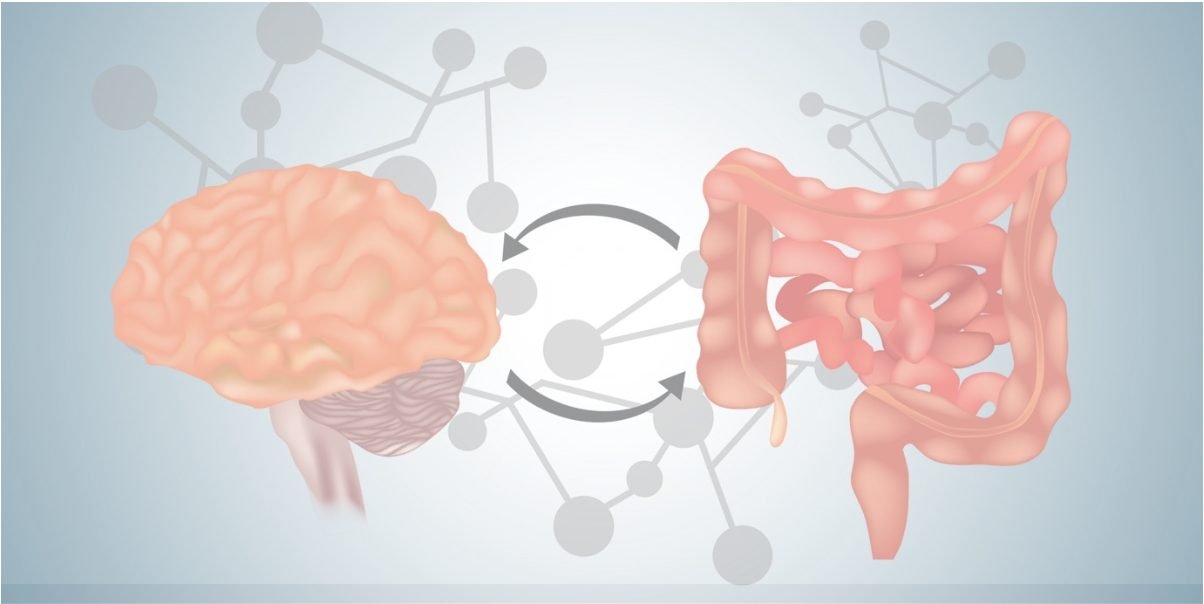Weight loss surgery is not just a physical transformation—it’s a total lifestyle shift. Among the many dietary adjustments required post-operatively, protein becomes a central pillar. Ensuring the right amount of protein intake after bariatric surgery is not just about losing weight; it’s about healing properly, maintaining muscle mass, and ensuring long-term health. At Body Genesis Institute, we support our patients every step of the way, and understanding your protein needs is one of the most vital tools on your journey.
Importance of Bariatric Surgery Recovery Nutrition
Post-surgery, your body undergoes significant metabolic changes. The stomach’s reduced size limits the volume of food you can eat, which means every bite counts. Nutrient-dense foods, especially those rich in protein, must become a staple of your new diet.
Protein plays a pivotal role in
- wound healing,
- muscle maintenance, and
- immune system function.
Without proper nutrition, recovery slows, and complications may arise.
How Much Protein Do You Need After Weight Loss Surgery?
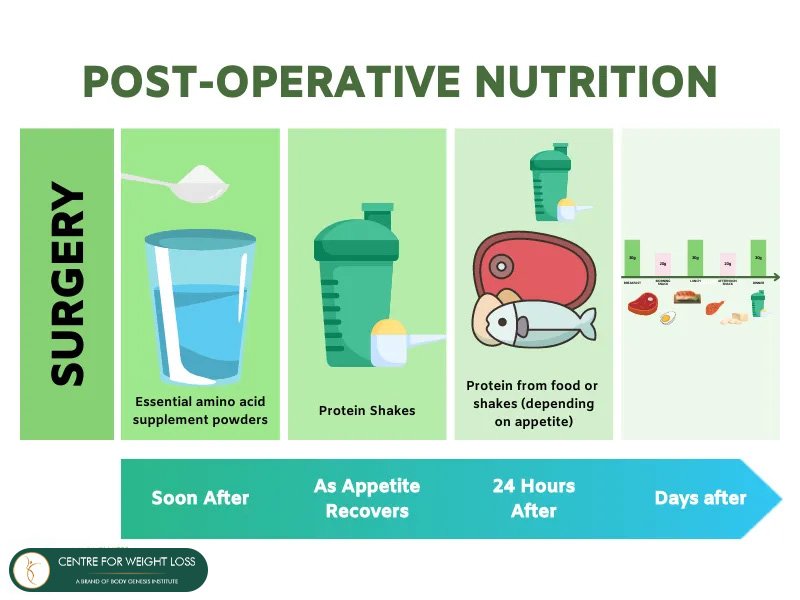
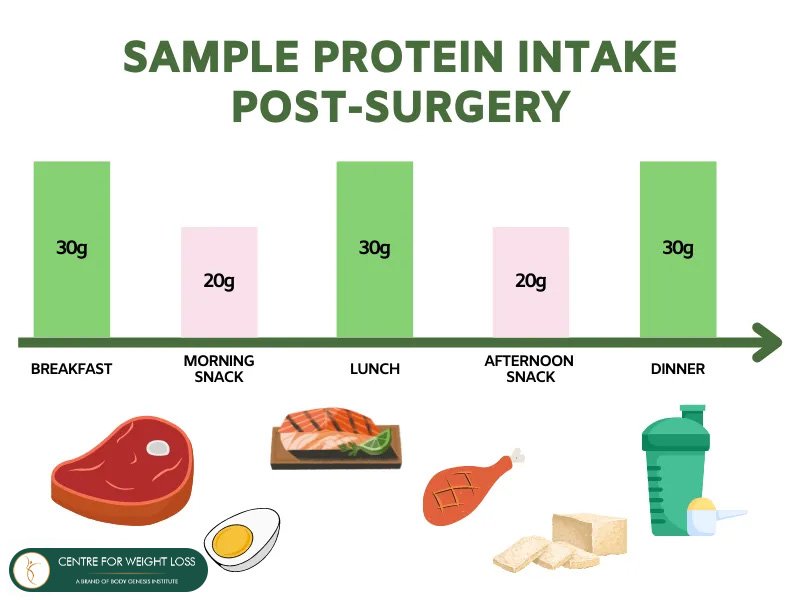
Protein needs vary by individual, but there are general guidelines that can help. According to the Australian and international bariatric associations, most post-surgery patients should aim for 60–80 grams of protein daily, with some needing as much as 100 grams depending on age, gender, and physical activity levels. Your dietitian or surgeon will provide personalised guidance, but this baseline offers a reliable starting point.
Why Protein is Crucial After Bariatric Surgery?
Protein is essential for preserving lean body mass, which is vital when you’re losing weight quickly. Unlike fat, your body can’t store protein, so it must be consumed regularly. Without enough, your body may begin to break down muscle for energy, which is counterproductive to your health and fitness goals.
Other benefits of adequate protein intake include:
- Promoting satiety and helping reduce hunger pangs
- Supporting the immune system
- Enhancing skin elasticity and wound healing
- Reducing hair loss, which can occur with inadequate nutrition post-surgery
Recommended Protein Intake in Post-Bariatric Surgery Diet
Your journey with protein starts immediately post-op. Here’s how it generally looks:
- Week 1–2 (Clear liquids and protein shakes): Protein shakes with 20–30 grams per serving are vital. Aim to sip 60g daily.
- Week 3–4 (Pureed foods): Introduce pureed protein-rich options like soft eggs, tofu, or blended meats.
- Week 5+ (Soft to solid foods): Continue building your protein intake with denser foods like grilled chicken, fish, legumes, and eggs.
Your meals should always start with protein, followed by vegetables and healthy fats. Carbohydrates are limited to small portions and should never replace protein.
High-Protein Foods for Bariatric Patients
After surgery, your stomach’s smaller capacity means you’ll be eating much less. That’s why quality over quantity matters. Here are some of the top protein sources:
- Lean meats (chicken, turkey, pork)
- Fish and seafood (salmon, tuna, prawns)
- Eggs and egg whites
- Greek yogurt and low-fat dairy products with Tasteless protein powder
- Plant-based options: tofu, tempeh, lentils, chickpeas, quinoa
Pro Tip: Choose moist cooking methods like baking, steaming, or slow-cooking to make proteins easier to digest.
Are Protein Supplements Necessary for Post-Bariatric Surgery Recovery?
Yes, especially in the early months. Because you can’t consume enough whole food initially, protein supplements help meet your nutritional needs. High-quality protein powders (whey isolate, plant-based blends) offer 20–30 grams per scoop and are easily digestible.
What to Look for in a Protein Supplement:
- At least 20 grams of protein per serving
- Low sugar (less than 5 grams)
- No artificial additives
- Easily mixable and palatable
As your ability to consume solid food improves, you may rely less on supplements. However, many bariatric patients continue using them for convenience and nutritional assurance.
Transitioning to Solid Foods After Bariatric Surgery
Gradual is the keyword. Each bariatric surgery patient is unique, but the typical timeline includes:
- Weeks 1–2: Clear liquids and protein shakes
- Weeks 3–4: Pureed consistency with protein focus
- Weeks 5–6: Soft foods like scrambled eggs, soft fish
- Week 7+: Begin introducing solid foods
Listen to your body. Eat slowly, chew thoroughly, and stop when full. Trying to rush the process can lead to discomfort or even complications like dumping syndrome.
Protein Intake: Common Mistakes to Avoid Post-Bariatric Surgery
Even with the best intentions, it’s easy to fall short. Here are frequent protein pitfalls:
- Skipping meals: Leads to underconsumption of daily protein
- Not prioritising protein in meals: Make it the first thing you eat
- Ignoring hydration: Dehydration can reduce energy and appetite
- Over-relying on carbs: They’re easy to digest but low in protein
- Using poor-quality supplements: Not all protein powders are equal
Make protein your priority at every meal and snack. Keep a food journal or use tracking apps to monitor your intake in the early months.
Conclusion
Protein isn’t just another nutrient after weight loss surgery, it’s the foundation of your recovery and long-term success. At Body Genesis Institute, our team understands that your bariatric journey doesn’t end in the operating room but begins there. Fueling your transformation with high-quality, consistent protein intake ensures you’ll not only lose weight but also gain health, vitality, and confidence.
Let Body Genesis Institute be your trusted guide, from pre-op planning to post-op protein success.
Interested in more personalised post-surgery nutrition guidance? Book your FREE consultation with a Body Genesis Patient Advisor today!




